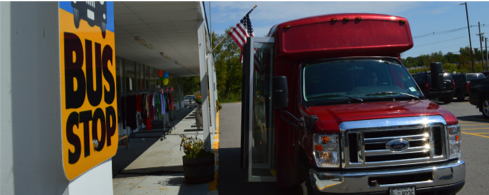New Report: Public Transportation’s Response to the Covid-19 Pandemic and How it Shapes Transit’s Future
- Author: A Conrick
- Date: August 11, 2021
Image Credit: Hillsborough Area Regional Transit With the COVID-19 pandemic rocking the United States, transit, like other essential sectors, needed…


